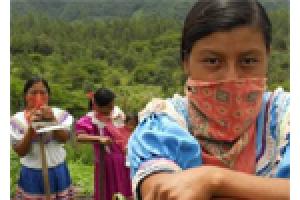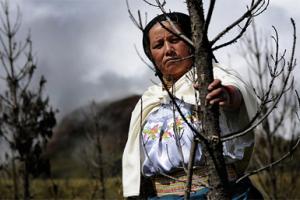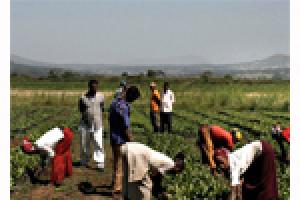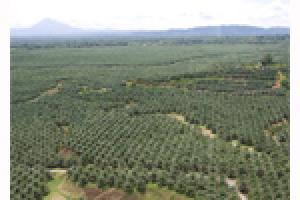By The Campaign to STOP GE Trees. Sign below to insist CTNBio not approve GMO Trees!
On Thursday 5 March, the Brazilian Biosafety Commission (CTNBio) was scheduled to decide whether to approve the commercial release of GE trees developed by FuturaGene. This meeting was cancelled after it was disrupted by activists, and after FuturaGene’s operations were taken over by 1,000 women earlier that same day.
Large-Scale Tree Plantations
Industrial tree plantations are large-scale, intensively managed, even-aged monocultures, involving vast areas of fertile land under the control of plantation companies. Management of plantations involves the use of huge amounts of water as well as agrochemicals—which harm humans, and plants and animals in the plantations and surrounding areas.
Action alerts
30 March 2015
Action alerts
30 March 2015
Only available in Spanish.
Por Alianza Biodiversidad y Red por una América Latina Libre de Transgénicos.
Publications
20 March 2015
United Nations’ 2015 International Day of Forests. Theme: “Forests / Climate / Change”. What change?
Download as pdf here.
The aim of this document is to respond to this year’s campaign for March 21 carried out by the Food and Agriculture Organization of the United Nations (FAO). In a very short video, FAO highlights forests’ capacity to trap CO2 and suggests: “Sustainably managed forests are the frontline against climate change.”
Multimedia
20 March 2015
This two-minutes video is a rebuttal of the one-minute video produced by FAO for International Day of Forests.
The video aims to challenge the FAO video for March 21, which narrowly and erroneously views forests as if they were a “storage facility” for wood and carbon.
width="480" height="360" frameborder="0" allowfullscreen="allowfullscreen">
Other information
11 March 2015
On December 8, 2014, a group of extraordinary women leaders gathered in Lima, Peru during the UN climate negotiations to speak out against issues of social and ecological injustice, and to share stories and plans of action for building a liveable, equitable world. Indigenous women from different places shared their experiences and struggles.
Other information
11 March 2015
The international network of peasants, La Via Campesina, calls for the coordination of actions during the International Women’s Day to highlight the fundamental role played by women in guaranteeing Food Sovereignty. On this day of struggle, it denounces the prevailing violence, against women specifically, because the agribusiness model, patriarchy and the capitalist interests in the countryside have exacerbated social and gender inequalities.
Bulletin articles
11 March 2015
Other information
6 March 2015
The recently released book “Money Logging” documents the local politics, international complicity and dedicated resistance in the struggle against the turning of Sarawak's rainforests into a monoculture of oil palms and hydropower reservoirs. Author Lukas Straumann singles out Abdul Taib Mahmud, former governor of the Malaysian state of Sarawak, as the kingpin of this Asian timber mafia, while he shows that Taib’s family—with the complicity of global financial institutions—have profited to the tune of US$15 billion.
Other information
6 March 2015
This documentary produced by “Periódico Resumen” addresses the origins and consequences of the expansion of the tree plantation industry in central-southern Chile. Plantations have been expanding in Chile at a phenomenal rate and now occupy a total of some three million hectares, seriously affecting not only the environment but also local communities. The droughts generated by monoculture plantations have also been provoking forest fires.
Other information
6 March 2015
Booming global demand for palm oil and limited room for the industry’s expansion in Asia have led large palm oil producers to look towards Africa. Companies are also betting on an explosion in demand from the European Union for palm oil as a ‘sustainable’ fuel, and Africa is the closest palm oil-producing region. Swaths of land have been allocated to foreign companies for oil palm plantations.
Other information
6 March 2015
Oil palm plantations in Palawan, as elsewhere in the Philippines, are portrayed as a key solution to lower greenhouse gas emissions and as a tool for poverty eradication. However, reality shows a different picture. A report from “Ancestral Land/Domain Watch” (ALDAW) explains the many reasons why oil palm development should be stopped. Among others, this monoculture takes over cropland and coconut groves which sustain local self-sufficiency.
Action alerts
4 March 2015
FOR IMMEDIATE RELEASE
New York (4 March 2015) – Organizations on four continents took action yesterday at Brazilian consulates and embassies as part of the Emergency Global Day of Action to STOP Genetically Engineered Trees. The groups are demanding the government of Brazil reject an industry request to legalize genetically engineered (GE) eucalyptus trees there.











